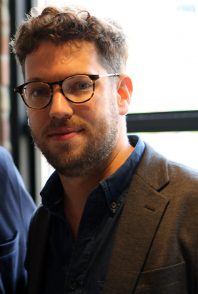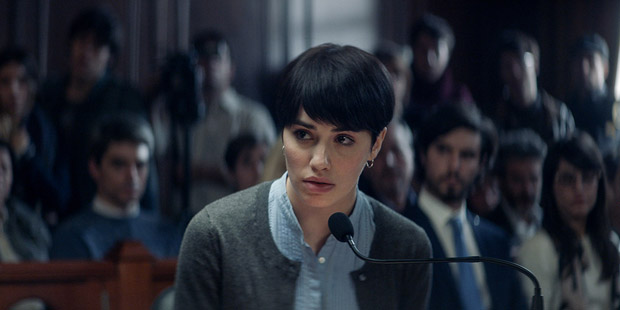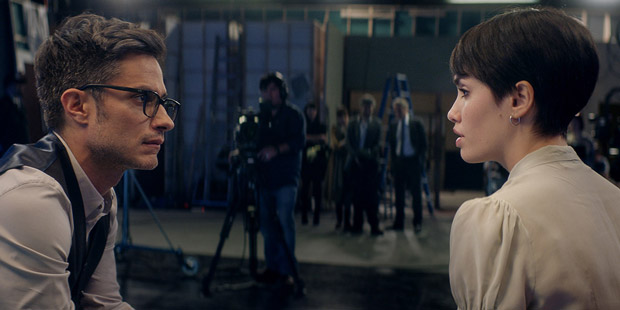
Vi har talt med argentinske Gonzalo Tobal om hans nyeste film, retsdramaet The Accused.
Why did you choose to tell this story?
Somehow it started with the observation of the assignation we have as a society throughout this story, how the media though fiction creates a narrative to follow a serial. Sometimes it looks like a reality show. I mean there is like a mixed feeling because I’m still captivated by the story a lot of the time and I’m always wondering about the real people, who are involved in this, and how it would be to go through something like this from their perspective. That’s really how it came up with the idea to tell a crime story about the inside of the family relationships.
The film is also called the accused not the innocent or convicted. So, do you think that media really changes our perception on things?
Yes, I mean many times they build our perception of things, but also the complex I think about nowadays is that, in a way everybody’s media, because with social networks we are all capable of sharing information and grading information, twisting and mixing, so we live in a strange moment. I think this is rather new than it’s just the media. And there were perceptions of those created though all this voice of information in the end this is what we see every day, and the world and the way we fallow our opinions of the truth – if there is a truth at all.
It’s kind of ironic as a filmmaker to say that the media changes how we see the world?
No, that’s why I don’t say it anymore in a sense that, not even great society, I think it’s a matter of understanding. It’s a way to build perception and that’s why in a way, I think it’s an interesting area to try to tell a story like this, but from a different perspective than what we usually are used to, and also in a way to put on the spot, all these questions about what is truth and what is reality and how we form an opinion when we are in front of an image. Because of course film-making is a place where we can be freer and more creative on the approach and the image can bring. It’s all about creating perception.

How did you cast the main character?
Actually, I don’t know if you know [Lali Esposito], but in Argentina she is a really big star, she has a lot of fans all over the world, but mainly because she grew up as a Disney/child star, and then she started her pop singing-career, and she became huge. So this was really something that we talked about during the casting, and somebody suggested that she could be interested in during a row like this, and we gave her the script and she read it and loved it, and she really wanted to do this, so I invited her to casting without any make-up to see her in a different way that the image you normally see her as. It was amazing to see her this way and I felt it was really going to fit well with the film, showing a new perspective. Even though we already know her in a way and then see her in a whole new and different way. And of course, during the casting she was great, and we started to read from the script and it was clear that she was the one to play the role.
Throughout the movie you don’t really know how it’s going to turn out. Was there ever a point where you kind of thought that there would be a different ending or a different verdict?
Yes, we have had different endings, we even shot a couple of possibilities which I kept for myself, but somehow the puma was there, which I’m glad that we went with. Because you know, this is how we work it’s sort of a mystery and I think the film is filled with that kind of mystery in small things so there is a lot of tension in things that normally aren’t so full of tension.
I was kind of wondering how you build this story up since there is a lot of stuff, that isn’t told explicitly in the script.
It was a long scriptwriting for us I have to say, with a lot of rewriting and with a lot of things that we wrote but aren’t specifically in the film, I mean we wrote a whole story that night of our point of view and then in a way that the whole story is pretty big. So, you only get to see a small bit, because the real drama of the film is actually not about that, and I think that’s real strange about the film; two dramas going on at the same time.
As a director how do you try to get the best performance out of the actors?
It’s very much intuitive I work with the actors as close as I can, and I try to work as much as I can with the script and the cast. With Lali [Esposito] we rehearsed a lot with inspiration and how the character is in the scenes. How she moves, talks, dance and then it’s more intuitive what you feel is right and what you want.

How did you think of Gael Garcia Bernal for this small part in the film?
I know Gael from before, we are kind of friends, we worked on a film once, so we wanted to figure out if he somehow could get in the film, and it was perfect because it’s an important character and with the participation he could do, it could fit his calendar.
How long did it take to make this film because it feels like the movies takes place during a long period of time?
The whole process took a couple of years, four-five years maybe from the development of the script, financing that, and then we shot for eight weeks. The editing took quite a while because it was a complex film also to edit. It’s always in the editing you can change something and even the whole meaning, but in this film, we did find the balance of what makes you think of the character and the whole situation. A few seconds could change the point of story.
What do you hope that people will take away from this film?
I hope they can get their own perspective on what had happened also to get some possible reflection on the assumptions on what we are talking about, and how our perceptions are created by the media, but also the social network and how nowadays if there is such a thing as truth or maybe just a debate, could come out of this whole. I think the film has the chance that two people get a very different reading of the film so hopefully this can also stimulate a lively debate.